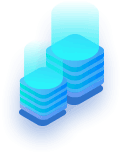1. Advantages of edge computing
Real-time and faster data processing. With reduced intermediate transmission and closer proximity to end devices, data transmission is more secure and data processing is faster and more timely.
Lower costs. Edge computing processes small data, which has cost advantages in data computing and storage.
Lower network bandwidth requirements. As the number of connected devices increases, the network transmission pressure will increase, but in the edge computing process, there is not much data exchange with the Ali cloud server, so it does not need to occupy too much network bandwidth.
Improved application efficiency. When data processing is faster, network transmission pressure is lower, and costs are lower, the efficiency of applications is greatly improved.
Cloud computing and edge computing makes data privacy protection more operational. Since data collection and computation are based locally and data is not transmitted to the cloud, important sensitive information can avoid leaks during the transmission process.
2. Advantages of cloud computing
Large scale. "Cloud" has a considerable scale, with Google Cloud Computing having over a million servers, while Amazon, IBM, Microsoft, Yahoo, and others have hundreds of thousands of servers. Private clouds generally have several hundred to thousands of servers. "Cloud" can provide users with unprecedented computing power.
Virtualization. Cloud computing supports users to obtain application services at any location and using any type of terminal. The requested resources come from the "cloud," not a fixed tangible entity. The application runs somewhere in the "cloud," but in fact, users do not need to know or worry about the specific location of the application. Just a laptop or a smartphone is needed to access all the services we need, even including tasks like supercomputing.
High reliability. "Cloud" uses measures such as data multi-copy fault tolerance and homogeneous interchangeable computing nodes to ensure high service reliability, making cloud computing more reliable than local computing.
Universality. Cloud computing is not targeted at specific applications and can construct thousands of different applications with the support of the "cloud." The same "cloud" can support the simultaneous operation of different applications.
Cloud computing is a coordinator that is responsible for big data analysis of long-cycle data in fields such as periodic maintenance and business decision-making. Edge computing focuses on the analysis of real-time and short-cycle data, supporting local business timely processing and execution.
Edge computing is close to the device end and also contributes to cloud data collection, supporting big data analysis of cloud applications. Cloud computing outputs business rules through big data analysis and sends them to the edge for execution and optimization.
Cloud computing and edge computing work together and complement each other, making digital transformation of the industry possible.





